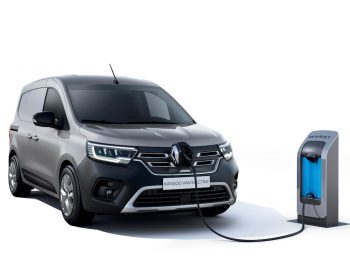Fleet electrification plans are being disrupted by a major lack of electric vehicle supplies, potentially impacting the Government’s 2030 ICE ban.

According to the Association of Fleet Professionals (AFP), the semiconductor shortages that have plagued the car industry for some 18 months are significantly affecting electric cars – but vans are even worse hit.
As a result, some firms are even being forced to consider adding petrol and diesel vehicles back onto their choice lists.
And the association warns that the situation is unlikely to improve in the near future.
AFP chair Paul Hollick explained: “We are in a position where many company car drivers are placing huge pressure on their employees to move them into EVs because of the current Benefit-in-Kind advantages but the supply to satisfy that demand is very frequently unavailable.
“Some manufacturers are even asking fleets to take certain EVs off choice lists because they simply do not know when any orders might be able to be fulfilled and, to fill the gaps, some employers are considering readopting ICE (internal combustion engine) vehicles, which seems like a deeply retrograde step but might be the only practical solution.”
The emerging view across the AFP is that the current situation makes the Government’s 2030 rule for complete production electrification “look increasingly optimistic”, according to Hollick.
“The nearest time that it appears supply might normalise is well into 2023 and it would now require a huge effort to meet the official deadline.”
To circumvent the situation, fleets are turning to unusual methods in order to attempt to obtain stock.
“Because their usual supply sources are failing, they are using social media such as LinkedIn to issue general appeals for any leasing companies that can provide vehicles of the type they need. This creates a potential issue by taking them outside of trusted supply arrangements.”
Similar issues were especially threatening industrywide efforts to begin adopting electric vans during 2022, Hollick explained.
“Many of our members were expecting that this year would provide a genuine opportunity to begin electrification of their light commercial vehicle operations but it appears as though supply is even poorer than for cars with delivery dates for many models unavailable.”
And this creates a real conundrum that could impact fleet operation, costs and safety.
“Ongoing supply issues mean that many are now operating vans that are sometimes more than six years old. They really need changing for basic reliability and safety reasons but delivery times are unavailable for the electric replacements that businesses want to acquire.”
Similar supply issues are also hitting some fleets and drivers looking to get home charging installed.
“Semiconductor shortages are at the heart of most EV supply disruption and the same is true of chargers. Some drivers who have been able to get cars or vans are therefore unable to charge them effectively. This is creating a further layer of frustration.”
Comprehensive advice on car and van electrification is available on the AFP website.

